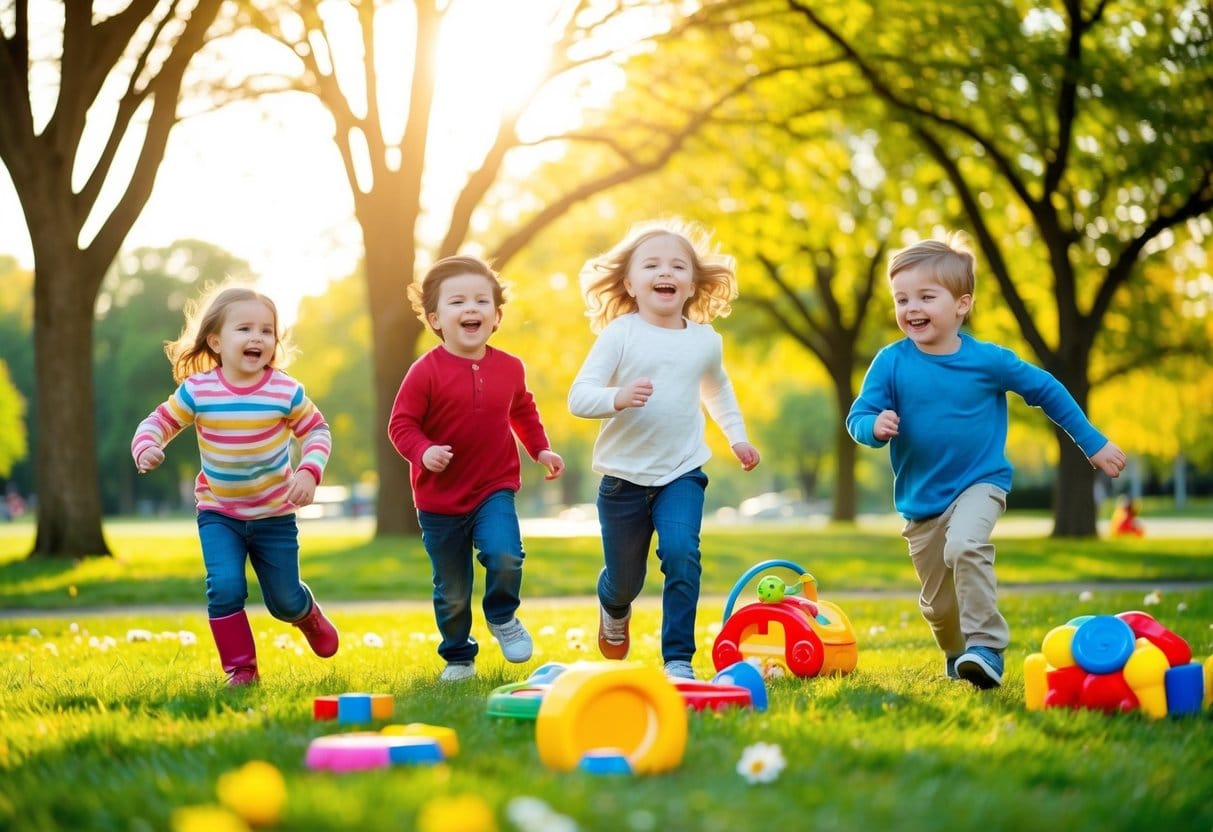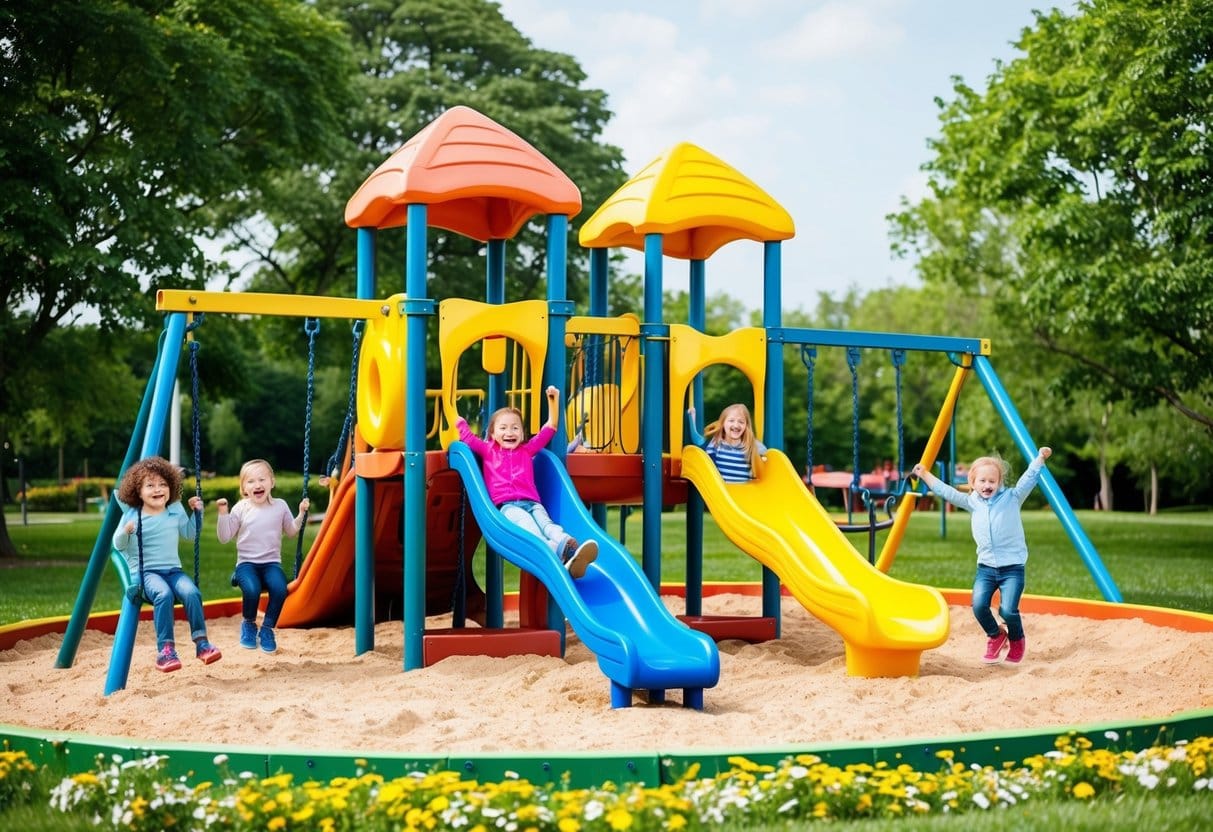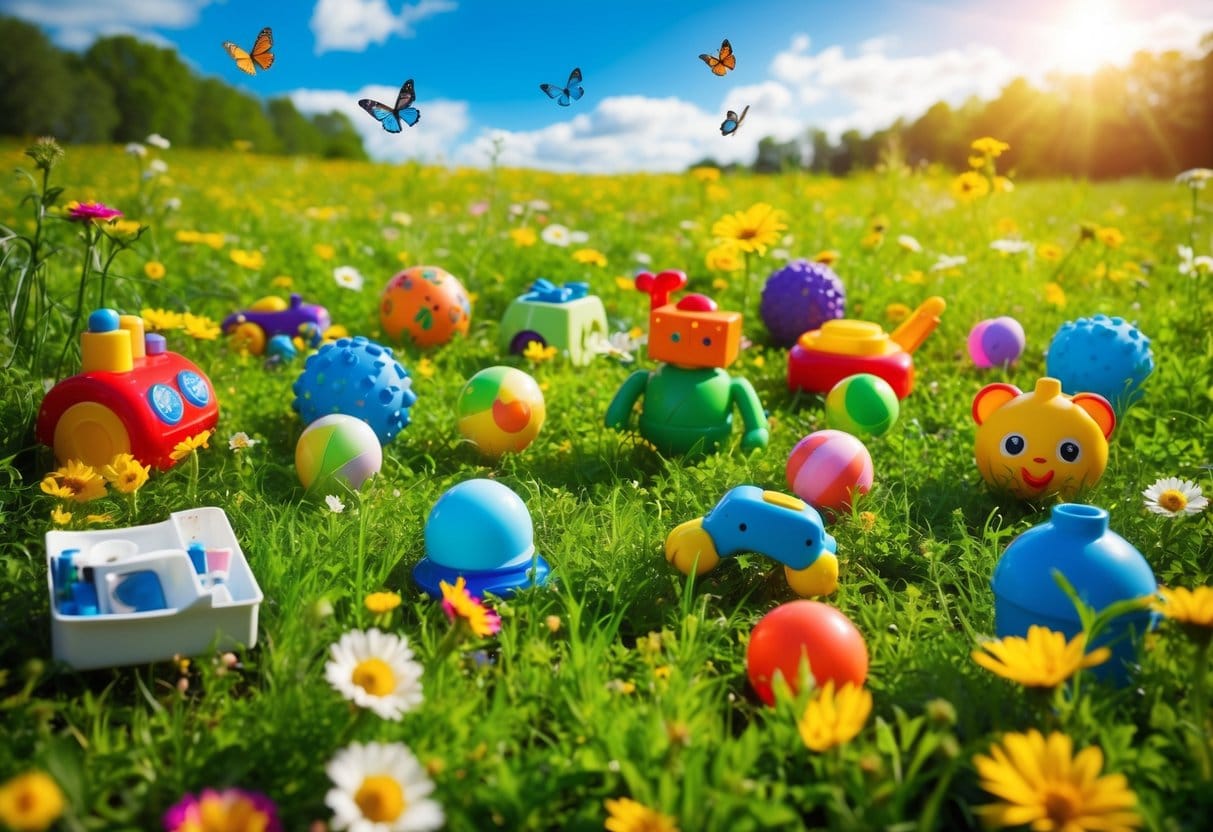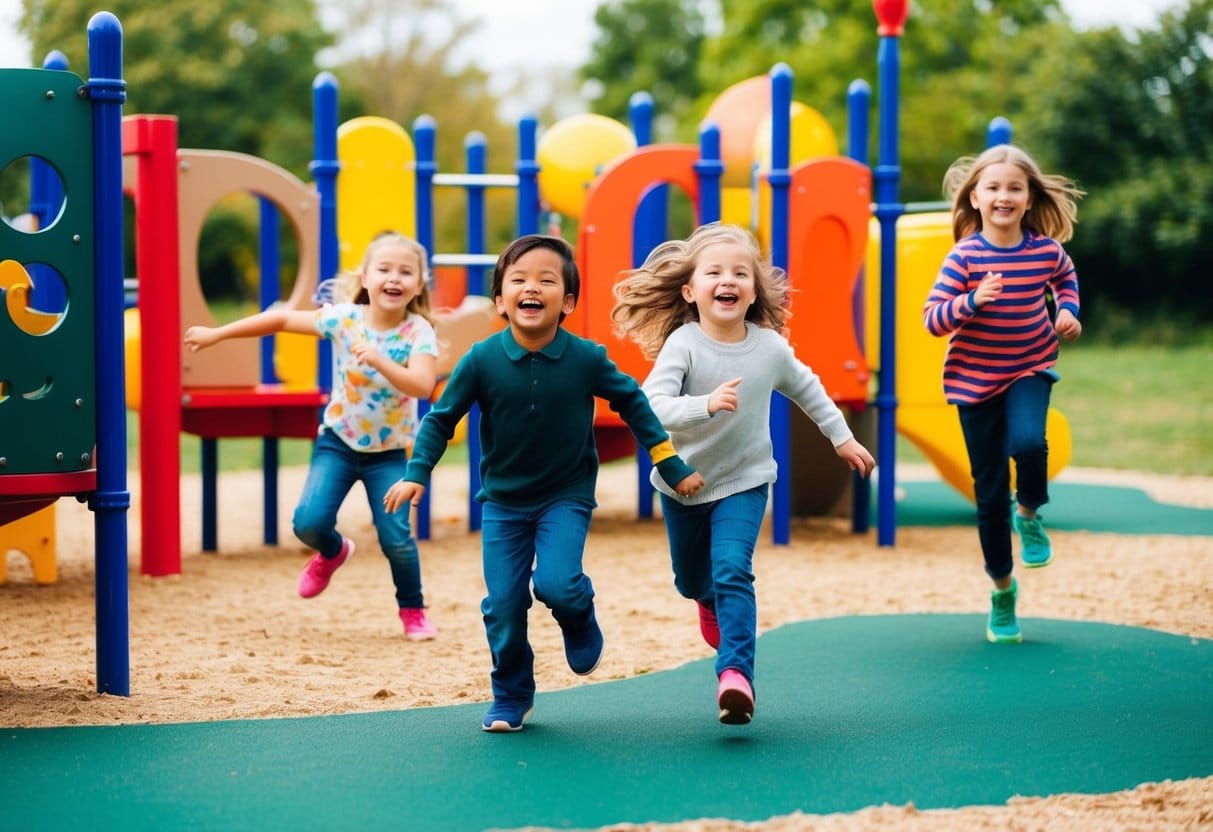Table of Contents
In the hustle and bustle of daily life, finding moments of joy and relaxation might seem like an elusive dream. Engaging in playful activities can significantly reduce stress and bring a sense of rejuvenation.
It offers a simple yet effective way to navigate the pressures of modern living.

Play isn’t just for children; it plays a crucial role in adult well-being too. Allowing yourself to engage in activities that spark joy can give your brain a much-needed break, making it easier to handle stress.
This not only benefits your mental health but also enhances your overall quality of life.
Incorporating play into your routine can also bolster your emotional health by facilitating stronger social connections. By doing so, you allow yourself the freedom to be spontaneous and creative, essential elements for maintaining mental agility and happiness.
Key Takeaways
- Play reduces stress and boosts mental health.
- It enhances social connections and creativity.
- Integrating play into daily life enriches well-being.
Understanding the Power of Play

The power of play extends beyond simple entertainment, offering profound benefits that touch on mental health, child development, and creativity. As you explore the various aspects of play, you’ll see how it enhances cognitive processing and mindfulness.
Defining Play and Its Importance
Play is a fundamental aspect of human behavior, crucial for both children and adults. It serves as a means of learning, exploration, and social interaction, offering a safe space to experiment and grow.
For children, play is a critical component of development, fostering creativity and problem-solving skills. Adults too benefit from engaging in playful activities, experiencing reduced stress and enhanced well-being.
The art of play improves emotional resilience by providing a break from everyday stressors, promoting relaxation and joy.
Historical and Cultural Perspectives on Play
Historically, play has been integral to numerous cultures, serving as a medium for storytelling, tradition preservation, and social bonding. In ancient civilizations, games and playful activities were often ritualistic and played vital roles in community building and learning.
Different cultures have various interpretations of play, yet all recognize its universal value. Whether through traditional games in ancient Rome or modern playful activities, play remains a cultural constant supporting social and cognitive development over time.
The Science Behind Playfulness
Recent studies have highlighted the scientific underpinnings of playfulness, linking it to reduced stress and increased cognitive processing. Engaging in playful activities reduces cortisol levels, the hormone associated with stress, fostering a more relaxed and alert state of mind.
Neuroscience research indicates that play stimulates brain areas responsible for executive function and emotional regulation. These activities boost creativity and enhance mindfulness, allowing individuals to better navigate complex tasks and social interactions.
How Play Promotes Mental Health and Reduces Stress

Engaging in play can significantly benefit mental health by reducing stress, alleviating symptoms of anxiety and depression, boosting emotional resilience, and preventing burnout. These actions contribute to an enhanced sense of well-being.
Play as a Stress Reduction Tool
Play serves as a powerful tool for dealing with stress. Activities like sports, games, or creative arts can release tension and reduce stress levels.
Engaging in playful actions stimulates the production of dopamine and serotonin, which are known to elevate mood and promote relaxation. By providing a momentary escape from daily pressures, play allows you to rejuvenate mentally and physically.
This break can help stabilize emotional responses and lower cortisol levels, the hormone associated with stress.
Combating Anxiety and Depression
Play is effective in combating anxiety and depression. When you engage in play, it can offer a temporary reprieve from negative thoughts, providing a sense of balance.
Interactive or social play helps facilitate connections with others, reducing feelings of loneliness. This bond can lessen symptoms of depression.
Physical play, such as sports or dancing, energizes the body and mind, offering an uplifting experience. Such activities can improve your motivation and encourage positive emotional shifts by creating an environment that fosters support and understanding, diminishing feelings of anxiety.
Play’s Role in Building Emotional Resilience
Through play, your ability to bounce back from difficulties is enhanced. It provides opportunities for problem-solving and decision-making, skills that contribute to building resilience.
Play encourages creative thinking and adaptability, which are crucial in navigating challenges. By fostering a playful mindset, you cultivate the capacity to view obstacles as opportunities for growth.
Over time, this practice strengthens your emotional resilience, allowing you to handle stress and adversity more effectively.
Preventing Burnout Through Joyful Activities
Engaging in joyful activities can be key in preventing burnout. Incorporating play into your routine adds fun and laughter, crucial elements for maintaining balanced mental health.
Play breaks the monotony of demanding schedules, offering moments of light-heartedness that refresh your spirit. Participating in activities you enjoy can reignite passion and excitement, deterring the fatigue associated with burnout.
These joyful engagements provide a necessary diversion, replenishing energy levels and helping you maintain momentum in your personal and professional life.
The Physical and Cognitive Benefits of Play

Engaging in play offers a myriad of benefits for both physical and cognitive development. It enhances physical health, boosts cognitive function and motivation, and supports the development of fine motor skills, playing a vital role in one’s overall well-being.
Improving Physical Health and Endurance
Play is instrumental in improving physical health by promoting strength, agility, and coordination. Engaging in active play, such as sports or dance, helps increase endurance, enabling the body to perform tasks for more extended periods without fatigue.
Regular physical activity during play also enhances cardiovascular health and bone density, reducing the risk of chronic diseases. Another key aspect of play is its impact on flexibility and balance.
Activities like running, jumping, or climbing challenge the body’s muscle groups, promoting muscular development. This results in improved overall physical fitness and lowers the likelihood of injury.
Boosting Cognitive Processing and Motivation
Play activates various cognitive processes, facilitating attention and concentration abilities. Engaging in play stimulates the release of endorphins, natural mood enhancers, which positively impact motivation and mental engagement.
This makes it easier to focus on tasks and solve problems effectively. Additionally, when you participate in games that require strategy or learning new skills, your brain’s reward circuitry is triggered.
This activation enhances memory retention and information processing, aiding in the development of critical thinking skills and increasing overall cognitive flexibility.
Supporting Fine Motor Skills Development
Fine motor skills are essential for executing precise movements and handling small objects. Play that involves activities such as building with blocks, drawing, or using instruments supports the development of these skills.
These activities refine hand-eye coordination, enabling more controlled and accurate motions. In childhood, the practice of these skills through play is crucial for achieving developmental milestones.
As you engage in varied play activities, the neural connections in your brain supporting these skills are strengthened, paving the way for proficient manual dexterity and control throughout life.
The Role of Social Connection and Community in Play

Engaging in play not only brings joy but also enhances social connections and community involvement. Through shared experiences and lighthearted interactions, individuals discover the importance of relationships and support systems, enriching emotional and mental well-being.
Building Strong Social Bonds
Play is a powerful way to establish and strengthen social bonds. By participating in shared activities, you develop trust and camaraderie with others.
Collaborative games and team sports encourage communication and cooperation, which are key components of strong social connections. Through play, individuals often discover common interests that lay the foundation for lasting friendships.
These interactions boost the emotional resilience of all participants, creating a network of support that extends beyond the play environment into everyday life.
The Power of Laughter and Positive Affirmations
Laughter is a universal language that transcends barriers, enabling deeper connections during play. Sharing moments of joy and humor fosters an atmosphere where you can express your true self without judgment.
This openness enhances your relationships and makes interactions more meaningful. Positive affirmations during play also enhance your self-esteem and strengthen your connections with others.
Words of encouragement and recognition create a supportive environment, bolstering both personal confidence and group cohesion. The result is a positive cycle of affirmation that enriches the social fabric of your community.
Fostering a Sense of Belonging
Engaging in communal play provides you with a sense of belonging. Participation in group activities offers a space where you feel valued and included.
This sense of community nurtures a shared identity, fostering loyalty and mutual support among participants. Engagement in playful community events or clubs can reinforce your place within a social circle, making you feel more connected and integrated.
As a result, the sense of belonging gained through play contributes significantly to emotional health and stress reduction, underscoring its essential role in cultivating a well-connected community.
Creativity, Spontaneity, and the Art of Playfulness

Creativity and spontaneity are central to the art of playfulness. Through play, you can unlock your creative potential and discover the joy of unexpected moments.
Unlocking Creativity Through Play
Engaging in play can be a powerful tool for fostering creativity. By approaching activities with a playful mindset, you open up pathways for innovative ideas and unique solutions.
When you allow yourself to explore without predetermined goals, you create space for imagination. Play encourages risk-taking in a safe environment.
This can lead to discovering new perspectives and methods. In play, the fear of failure diminishes, making room for experimentation and the discovery of unexpected insights.
You can experience joy and satisfaction from generating original ideas without the pressure of strict expectations.
The Value of Spontaneity and Recreation
Spontaneity plays a crucial role in enhancing your well-being and sense of fulfillment. Participating in recreational activities without structured plans allows you to connect with your authentic self.
This approach cultivates flexibility, reducing stress and promoting adaptability to life’s challenges. When you embrace spontaneous play, barriers are broken down, fostering stronger connections with others.
The shared experiences during unplanned moments create opportunities for laughter, bonding, and mutual understanding. Recreation doesn’t just provide relaxation—it is an avenue for personal growth and enriched relationships, allowing you to embrace life’s intricacies with a refreshed perspective.
Integrating Playful Practices for Everyday Well-Being
Incorporating play into daily life can significantly enhance mental health, reduce stress, and foster deeper connections. By embracing mindful play, engaging in enjoyable activities suited for adults, and combining relaxation techniques, you can create a fulfilling and balanced routine.
Mindfulness and Playful Presence
Mindfulness encourages you to experience the present moment fully, and incorporating play into mindfulness practices can make this even more rewarding. Simple games or activities can be transformed into opportunities for mindfulness.
For instance, focusing intently on a jigsaw puzzle or engaging in a light, spontaneous activity like doodling allows you to stay grounded in the present. Key practices include mindful walking with playful steps or intentionally observing a specific object with curiosity.
These habits can lead to greater awareness, stress reduction, and a more profound sense of contentment, richly enhancing your day-to-day life.
Playful Activities for Adults
Introducing play into adulthood doesn’t mean reverting to childhood games; it involves finding activities that resonate with grown-up interests and increase well-being.
Consider joining a sports league, attending a dance class, or participating in role-playing games.
These activities provide enjoyment, foster social connections, and improve emotional resilience.
Tips for making the most of adult play: focus on what genuinely intrigues you, rather than what’s trendy.
Involve friends or new acquaintances to boost bonding.
Finding joy in these activities can provide a much-needed outlet from the rigors of daily responsibilities.
Combining Play with Yoga and Relaxation Techniques
Yoga and relaxation exercises like meditation and deep breathing can be enhanced by infusing them with elements of play.
Trying unconventional poses or integrating laughter yoga can transform typical routines into delightful sessions.
These methods reduce stress and contribute to increased vitality and relaxation.
You can also integrate fun tools like yoga dice to inspire creativity in your practice.
Letting go of the need for perfection and enjoying these playful explorations helps deepen your relaxation experience.
Releasing tension and fostering joy can lead to a harmonious balance between body and mind.
Therapeutic Approaches: Recreational Therapy and Beyond
Engaging in recreational therapy leverages playful activities to reduce stress and enhance well-being.
Addressing shame and embracing play further empower individuals to heal and grow.
The Benefits of Recreational Therapy
Recreational therapy uses a variety of activities, such as art, music, and sports, to improve mental health.
By promoting emotional expression and reducing stress, these activities can trigger the release of endorphins, improving mood and well-being.
Incorporating such therapies as part of your routine helps build resilience in coping with anxiety and depression.
Support from trained therapists can further enhance the effectiveness of these therapies.
They guide you in selecting activities that align with your interests and therapeutic goals.
Addressing Shame and Embracing Play
Shame can inhibit the ability to engage freely in play and recreation.
When you confront and address shame, it reduces its power over you and opens the door to benefiting from recreational activities.
Embracing play involves finding joy in activities without the burden of judgment.
It helps you connect with your inner child, promoting creativity and spontaneous action.
This approach can improve self-esteem and foster healthier relationships.
Therapists can support this journey, providing guidance in recognizing shame triggers and encouraging playful exploration.
Frequently Asked Questions
Incorporating play into daily life offers numerous benefits including improved development in children, stress reduction for adults, and positive psychological impacts.
Educational settings also leverage play for enhanced learning, and it serves as a therapeutic intervention.
How does play enhance development in young children?
Play is crucial in early child development.
Through various forms of play, children acquire essential skills such as problem-solving, social interactions, and emotional regulation.
This foundation helps them develop independence and creativity.
What role does play have in adult well-being and stress reduction?
For adults, play acts as an effective stress reliever.
Engaging in playful activities allows you to disconnect from daily stresses, promoting relaxation and mental clarity.
This fosters a positive mood and can lead to increased productivity.
What are the psychological impacts of play on child and adult mental health?
Play contributes significantly to mental health.
For children, it can reduce anxiety and prevent aggression.
Adults benefit from enhanced emotional resilience and joy, reducing feelings of anxiety and depression.
How is play integrated into educational settings to improve learning outcomes?
Educational institutions incorporate play through interactive and experiential learning techniques.
This approach engages students more effectively, resulting in better retention of information, improved concentration, and a more enjoyable learning experience.
Can play be used as a therapeutic intervention for stress management?
Play therapy is used in clinical settings to help individuals manage stress and emotional difficulties.
This approach provides a safe space for expressing feelings and resolving conflicts, promoting healthier coping mechanisms and emotional healing.
What are the long-term benefits of incorporating play into daily life for all ages?
Engaging in regular play has lasting benefits.
For children, it aids in developing lasting social skills and cognitive abilities.
Adults who include play in their routine often experience improved mental well-being and stronger relationships.
Ready to unlock joy and alleviate stress with the power of play?
Explore these resources:
- Play: How it Shapes the Brain, Opens the Imagination, and Invigorates the Soul by Stuart Brown and Christopher Vaughan
- The Power of Fun: How to Feel Alive Again by Catherine Price
- The Happiness Project by Gretchen Rubin




